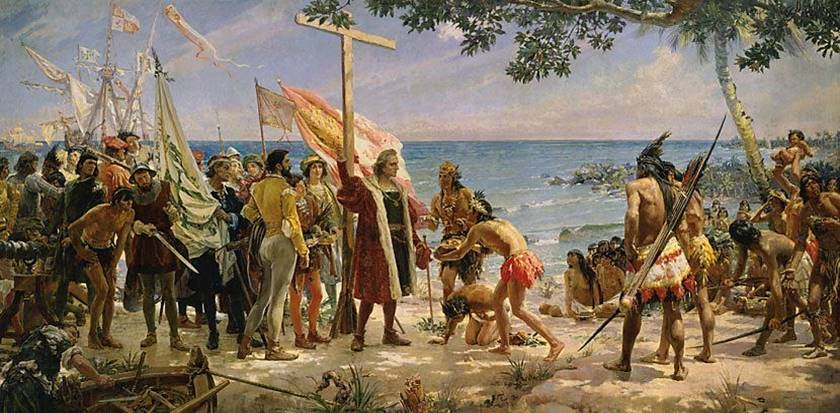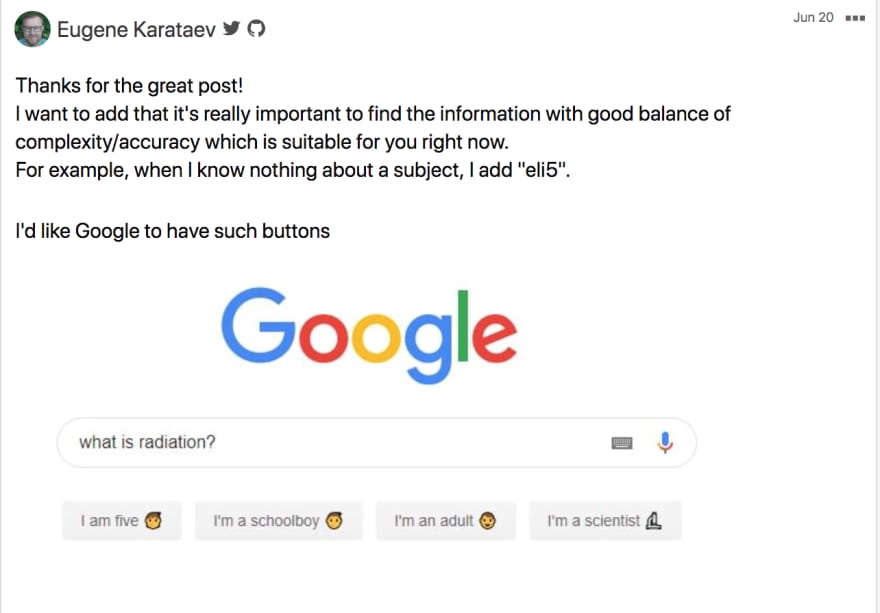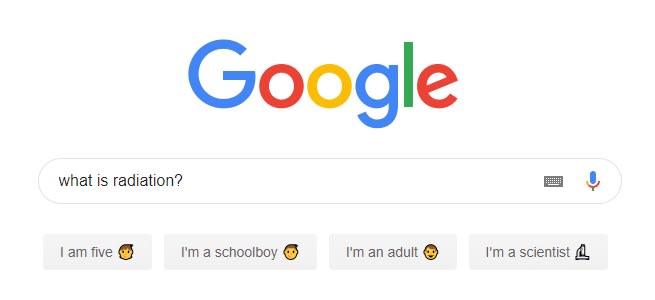I often find that when people discuss "intelligence", they are actually talking about "knowledge". Confusion of these terms is responsible for awful things like, standardized testing and whiteboard interviews, which only prove what you know, and not how well you learn.
For most of human history, there was definitely no Wikipedia or "Internet", and in most cases, people didn't even know how to read. In those days, information was THE scarce resource, which in turn, made knowledge a dominating portion of the "perceived intelligence" equation.
It's Not 1429 Anymore
No longer is information a bottleneck in the "perceived intelligence" equation. The Internet provides a nearly always-reliable method of quickly retrieving the exact information you need, anywhere you need it. Additionally, knowing things doesn't scale. The smartest person who ever lived only knew
.0000000000000000000000000000000001%
of all there is to know. If you spent every second of your life learning about a specific niche (say Java programming), you would still know NOTHING. There's just too much information.
How to Get Smarter Without Knowing Anything
You have to stop optimizing for storing knowledge and instead optimize for retrieving knowledge. As long as you have a smart phone, you have the Internet in your pocket, and therefore all the "knowledge" in the world. The question is, how do you make sure you can find it AND understand it?
It was a bit of an exaggeration to say you don't need to know anything. In reality, you need to optimize your "bootstrap knowledge" while minimizing elsewhere. Bootstrap knowledge describes the set of knowledge needed to find information quickly, and subsequently learn that information quickly.
Finding Information Quickly
Finding information quickly is the core foundation of the "know nothing" strategy. Obviously there are countless methods to improve your ability to find "things" on the Internet. But there are a few that are incredibly crucial.
Learn How to Use Google
Most people use Google every single day never touch any of its advanced features. Did you know you can use the wildcard * character in Google search? What about basic Boolean operators liked AND, OR, NOT? There are seriously hundreds of ways to improve your ability to search. Google is the root node in our findability graph, so you should do everything you can to increase your accuracy.
Update: Eugene made a great point about tailoring your search to your current understanding! It's spot on.
Learn to See Through Bullshit
People constantly lie on the Internet. Gasp! Most of the time they lie very poorly, sometimes they lie decently, and very rarely they lie well. You don't care about identifying good liars, there are too few and your chances are too low. Instead filter out the 99%, by learning common logical fallacies and erroneous arguments. It's important to understand that a poorly structured argument that you agree with, is just as dangerous as one you don't agree with. The number one enemy of "know nothing" is disinformation.
Optimize for a Specific Source
It's absolutely critical that you attempt to find a uniform and consistent presentation for the information you consume. The more each source varies from the last, the less your brain can optimize away. I personally favor Reddit, because the inherent separation of information (subreddits) can save a lot of time in finding things. It doesn't have to be Reddit, but it definitely needs to be a site offering diverse opinions (so probably not anything from China). For those unsure of what optimizing for a specific source looks like in practice, imagine that every time you Google a question, you instead Google:
affordable bike buy site:reddit
It's important to stay up to date with the trends and etiquette of your chosen source. The more sure you can be of the accuracy and intent of users on the platform, the faster you can find the RIGHT information.
Don't Get Locked Into a Specific Source
Just as much as it's important to use one source the majority of the time, it's incredibly crucial to be comfortable going outside that source when needed. Even with a site as popular as Reddit, there will always be gaps in available information. For this reason alone it's incredibly important to be comfortable with multiple sources. There will also be times where you realize the information from your source is wrong. Feeling comfortable consuming content from another source gives you a real choice in terms of the information that controls your decisions.
Sidenote: Why do I prefer Reddit?
Making decisions doesn't scale. In life you're constantly going to need to make decisions and there's no way to make every decision yourself and maintain quality. Instead I prefer to "delegate my decisions".
To properly delegate decisions you'll need to find a community that you believe aligns with your core values. Then, based on a set of criteria, allow small decisions to be determined by the community instead of yourself. This way, you can allow yourself to only spend time on critical decisions and offload the smaller stuff to a group who most likely will choose what you would have anyway. I plan to write another post in the future that goes in depth about how and why I use Reddit.
Learning Information Quickly
Learning information quickly is the only way to scale with the process of finding information quickly. I believe, the rate you learn new information is defined by the following equation
learning rate =
relatability factor * base learning rate
The base learning rate is derived from a mixture of retention rate, reading comprehension, vocabulary, ability to decipher good information from bad information etc. relatability factor describes the relationship between the new information you want to learn and the closest thing it relates to, that you already know. In other words, the relatability factor of new information is an expression of how "new" it truly is.
How to Improve Your Base Learning Rate
Improving your base learning rate is pretty straightforward. Read more, a lot more. Reading is the quickest way to both improve reading comprehension (duhhh) and general vocabulary. Make sure to push the boundaries of what you read constantly. If you stay in one genre or niche too long, the improvements to your vocabulary will slow drastically.
Honestly, the best way to improve base learning rate is to just be healthier. Most people don't sleep enough, drink enough water, consume a healthy diet, exercise daily and meditate. Each of those things will do more for your ability to learn (and general mental health) than anything direct.
How to Improve Your Relatability Factor
Improving your relatability factor is a bit of an optimization problem. As previously stated, it's impossible to know anything. The goal with relatability is to optimize for pieces of knowledge that are heavily relatable and highly separated. After all, anything is a combination of other things. So you want to know the building blocks of as many things as possible. Make sure some % of what you read comes from sources that challenge your existing viewpoints, otherwise you might develop stronger biases.
Math is a perfect example of a relatability building block. Understanding core mathematics such as calculus or even simple algebra will enable you to understand a huge amount information that would be unavailable otherwise.
Teaching yourself a new language is also an amazing way to improve your relatability score. Learning common tropes, memes and cultural references can also be helpful in moderation.
Remember, your goal is to learn as many novel pieces of heavily used information as possible. This will ensure that any random new piece of information encountered is likely to be close enough to something you already know to be relatable. Being able to relate to something new will drastically reduce the amount of time it takes to learn it. This way, instead of having to know "everything" you just know how to find and learn the things you need when you need them.
Conclusion
Focus on improving your ability to find and learn information instead of trying to learn by collecting information. We live in an age where you can trust the knowledge infrastructure, allowing you to decouple your intellect from how much you know.















Top comments (31)
I really like this article. I've had similar ideas for a while. In Europe in the middle ages, books were rare and very valuable. If you wanted to read a book, say about medicine, you'd have to travel to the monastery that held that book, possibly for weeks or months. Then, if you were deemed worthy enough, you'd get access to the book. If you wanted to take that knowledge back with you, well, there was nothing for it but to memorize the whole thing!
I imagine that this put a great premium on people who could memorize long pieces of text by rote. Such a person could travel through the world and dispense the best-known wisdom of the day, such as medical advice, by referencing all of the knowledge they'd accumulated. I think this perspective has influenced education, and society in general, for centuries, and still lives on in the systems and attitudes that we've got today, even though the world is very different in this sense.
Thanks for the kind words about the article.
At the library of Alexandria, every ship that came into port was forced to forfeit their books. The books would be taken and copied very quickly, and then the copies would be returned to the ships.
I completely agree. At that time religious representatives (priests, clergy, rabbis etc) were often the only ones who knew how to read (aside from the very wealthy). I think this represents a level of classism that still exists today!
I thought you must have made a typo in saying that the copies were returned to the ships. But no! It seems that indeed, they kept the original versions for themselves and those hastily made copies were actually returned! At least I guess they didn't have illuminated manuscripts yet back then! That would have hurt I think!
Isn't that incredibly interesting?
Wonderful article.
I don't have a lot of insight to add other than to tell you that I took some avid notes. I appreciate you articulating your learning process in such a bite-sized manner. What you covered here is extremely valuable and will certainly take discipline to fully implement. The way you wrote it makes me feel as though it is approachable. Congrats on a very well written article.
I thoroughly enjoyed it and will read it again, multiple times.
Thanks for such a kind comment. I appreciate the way you articulated the aspects you liked about my post, because you thought of an aspect I hadn’t (haha)! I’m glad you enjoyed it, thanks for taking the time to read.
Thanks for the great post!
I want to add that it's really important to find the information with good balance of complexity/accuracy which is suitable for you right now.
For example, when I know nothing about a subject, I add "eli5".
I'd like Google to have such buttons

P.S. Every time I read your post, I check my internet connection speed because of .gif avatar 😂
First off, thanks for taking the time to read my post. I'm really glad you got value out of it.
dev.to/karataev/comment/c598
I completely agree with your comment, and with your permission, would like to update the post with a quote referencing it. We were just talking in the office today about how Twilio does something like this in their onboarding.
There's a reason I named it "dialup.gif"
Sure, I'd be happy if you update your post with my comment!
"I'm a student" might bring in more than one gender, and also - pet childhood peeve - recognise the act not the actor i.e. that they are studying.
Great article! 👏 I thoroughly enjoyed it! Although in terms of keeping up to date with the hippest memes and what not is hard to do depending on the type of person you are. For example I am not a meme person unless someone shows it to me I will not actively look for them since I have no interest to.
So glad to hear you liked it. I agree that things change fast and sometimes it’s very hard to keep up with trends. I recommend creating some methods to quickly go through the most important trends (through a twitter list or custom reddit).
I also don’t care for memes but sometimes keeping up with that stuff is critical.
Back around 2015 I applied for a journalism grant to study the impact of memes on public debate, and potential positive impact on news flows.
My application was rejected on the basis that it lacked sufficient academic "vigour".
Weird flex for a journalism app, but okay - four years later memes have had a huge impact globally, and continue to do so, as an example of what the author - hi Ryland ! - rightfully suggests.
As for trend monitoring, suggest twitter and reddit, maybe fed through email so it just becomes part of the yeah-yeah daily flow?
Interesting story, there would have been some serious material had you been approved for the grant.
I think memes are unfortunately just a reflection of how global culture has shifted in recent times. Memes epitomize the low invest, high reward model that drives modern news and information distribution.
I use both twitter and reddit, although ironically, twitter is horrible out of the box. Reddit just makes it so easy to minimize the time it takes to find the information you want.
I’d love to hear more about your efforts. Also thanks for reading and leaving a great comment.
The healthier part is very true. To be honest I have gained weight over the last couple of years, not as active as I used to be and I don't sleep more than 5 hours. I have noticed the impact on learning and attention span. So I need to turn it around.
The hardest and most important step to getting healthy is identifying that there's a problem. It seems like you're already past that which means you can progress quickly.
Don't change anything about your current routine, just slowly add positive habits. For example, start exercising each day, but change nothing else. Eventually, the exercise will improve your mood/health enough that taking on another habit is literally easier than it would have been before. Repeat.
Do this enough, and you can take back control from the inside. It's just key not to overwhelm yourself, the brain rejects changes that are too drastic. Instead, trick your brain by slowly changing over time.
This is a really good article about becoming wiser when it comes to looking for solutions. Instead of memorizing everything, it is indeed better to have the ability to look for answers, comprehend them and apply them to the problem. I like how you've not only given tips for acquiring information but also on how to learn it quickly.
Thanks for the kind words. I'm glad it resonated well with you.
I like your formula:
Thanks a lot.
I share this post to reading books communities.
It's Not 1429; it's 1492.
Ahem..., wouldn't seem too smart with that typo.
It was honestly just a random year. Wasn't talking about Columbus
Ah. An article on the importance of being wise.
I'm glad it came across that way! Hope you enjoyed it.
the best coders are expert googlers :)